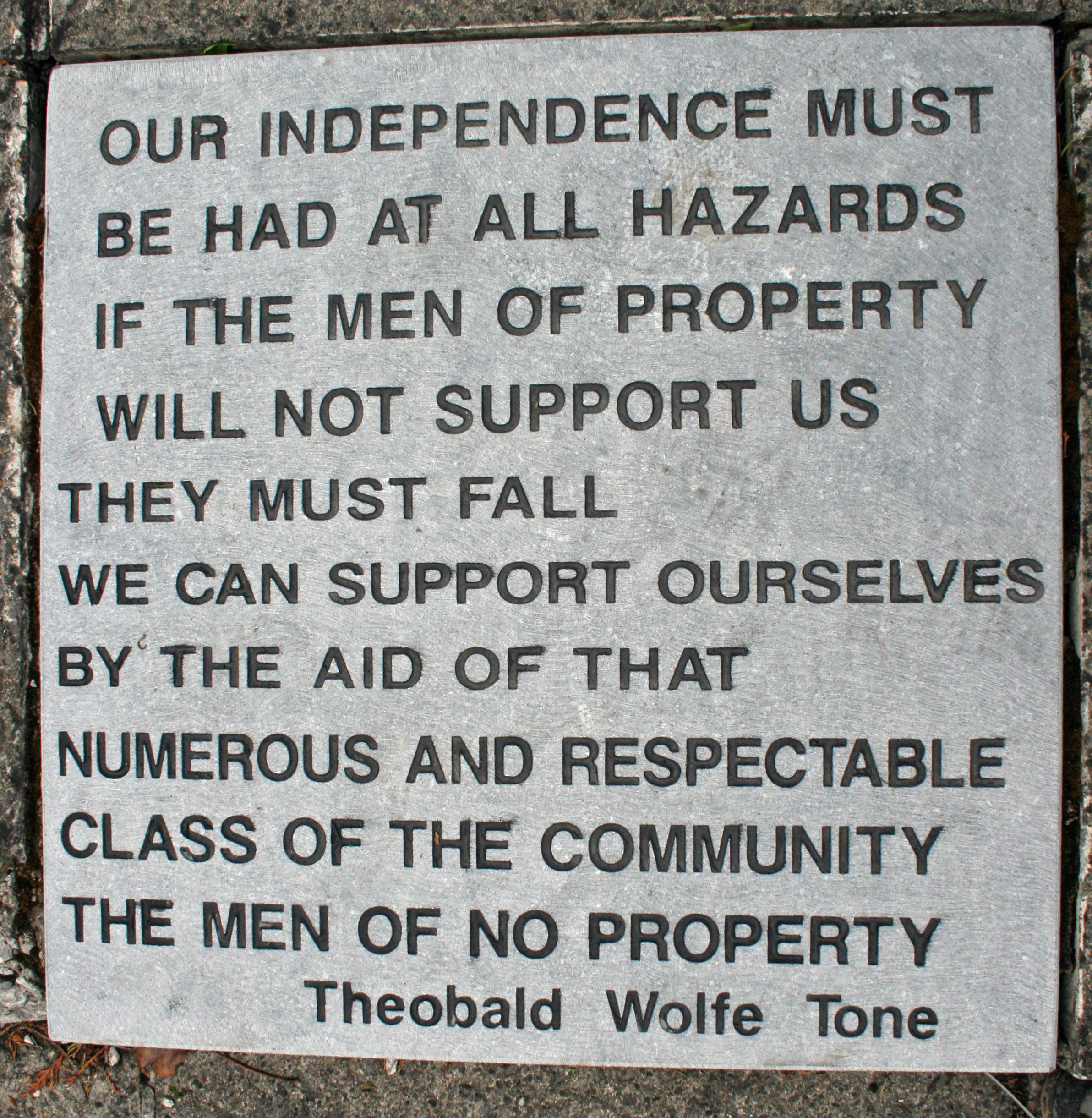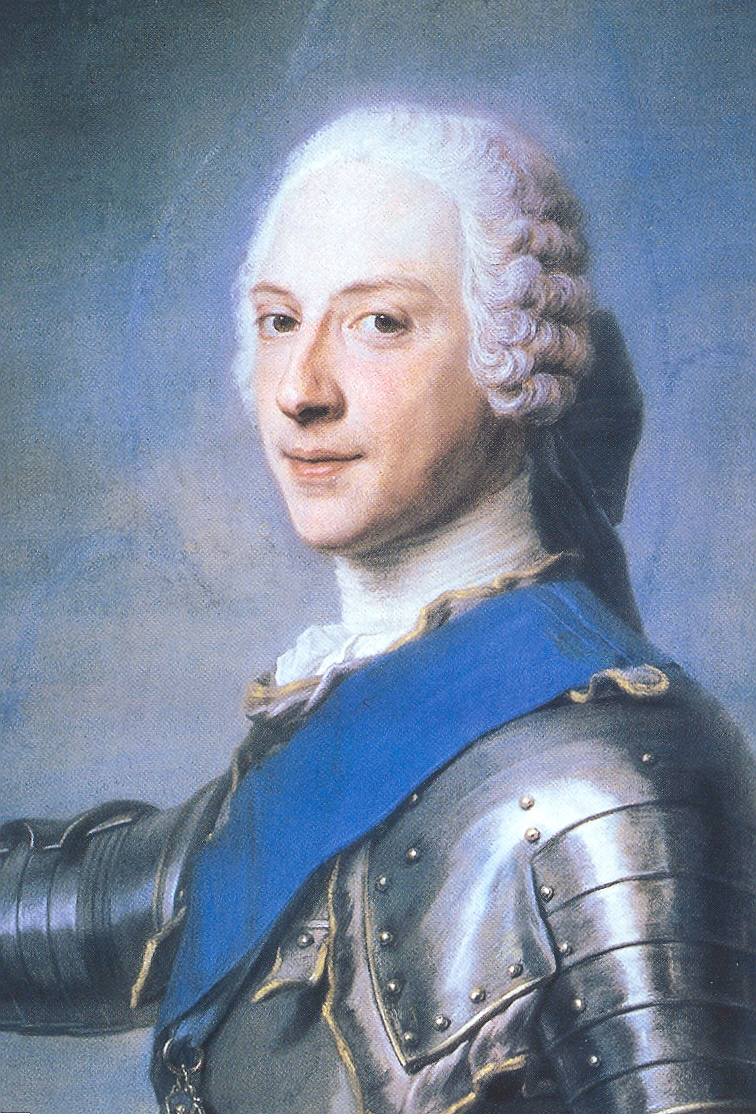|
Republic Of Connacht
The Irish Republic of 1798, more commonly known as the Republic of Connacht, was a short-lived state proclaimed during the Irish Rebellion of 1798 that resulted from the French Revolutionary Wars. A client state of the French Republic, it theoretically covered the whole island of Ireland, but its functional control was limited to only very small parts of the Province of Connacht. Opposing British forces were deployed across most of the country including the main towns such as Dublin, Belfast and Cork. Proclamation At the time of the Rebellion of 1798 a force of 1,000 French soldiers under General Jean Joseph Amable Humbert landed at Killala in County Mayo. General Humbert proclaimed the Irish Republic in his declaration to the people upon landing in Ireland on 22 August 1798: After the nascent Republic's victory at the Battle of Castlebar which took place on 27 August 1798, General Humbert, on 31 August 1798, issued the following decree, which '' inter alia'' appointed Jo ... [...More Info...] [...Related Items...] OR: [Wikipedia] [Google] [Baidu] |
Revolutionary Republic
A revolutionary republic is a form of government whose main tenets are popular sovereignty, rule of law, and representative democracy. It is based in part on the ideas of Whig and Enlightenment thinkers, and was favored by revolutionaries during the Age of Revolution. A revolutionary republic tends to arise from the formation of a provisional government after the overthrow of an existing state and political regime. It often takes the form of a revolutionary state, which represents the will of its constituents. The term also refers to the form of government that the National Convention favored during the French Revolutionary Wars, as France established republics through its occupation of neighboring territories in Europe. Most of these client states, or sister republics, were means of controlling occupied lands through a mix of French and local authority. The institution of republican governments as a means of promoting democratic nationalism over monarchies (primarily the Bou ... [...More Info...] [...Related Items...] OR: [Wikipedia] [Google] [Baidu] |
County Mayo
County Mayo (; ga, Contae Mhaigh Eo, meaning "Plain of the Taxus baccata, yew trees") is a Counties of Ireland, county in Republic of Ireland, Ireland. In the West Region, Ireland, West of Ireland, in the Provinces of Ireland, province of Connacht, it is named after the village of Mayo, County Mayo, Mayo, now generally known as Mayo Abbey. Mayo County Council is the Local government in the Republic of Ireland, local authority. The population was 137,231 at the 2022 census of Ireland, 2022 census. The boundaries of the county, which was formed in 1585, reflect the Mac William Íochtar lordship at that time. Geography It is bounded on the north and west by the Atlantic Ocean; on the south by County Galway; on the east by County Roscommon; and on the northeast by County Sligo. Mayo is the third-largest of Ireland's 32 counties in area and 18th largest in terms of population. It is the second-largest of Connacht's five counties in both size and population. Mayo has of coastline, ... [...More Info...] [...Related Items...] OR: [Wikipedia] [Google] [Baidu] |
Wolfe Tone
Theobald Wolfe Tone, posthumously known as Wolfe Tone ( ga, Bhulbh Teón; 20 June 176319 November 1798), was a leading Irish revolutionary figure and one of the founding members in Belfast and Dublin of the United Irishmen, a republican society determined to end British rule, and achieve accountable government, in Ireland. Throughout his political career, Tone was involved in a number of military engagements against the British navy. He was active in drawing Irish Catholics and Protestants together in the United cause, and in soliciting French assistance for a general insurrection. In November 1798, on his second attempt to land in Ireland with French troops and supplies, he was captured by British naval forces. The United Irish risings of the summer had already been crushed. Tone died in advance of his scheduled execution, probably, as modern scholars generally believe, by his own hand. Later generations were to regard Tone as the father of Irish Republicanism. His grave in ... [...More Info...] [...Related Items...] OR: [Wikipedia] [Google] [Baidu] |
Monarchy Of Ireland
A monarchy is a form of government in which a person, the monarch, is head of state for life or until abdication. The political legitimacy and authority of the monarch may vary from restricted and largely symbolic (constitutional monarchy), to fully autocratic (absolute monarchy), and can expand across the domains of the executive, legislative, and judicial. The succession of monarchs in many cases has been hereditical, often building dynastic periods. However, elective and self-proclaimed monarchies have also happened. Aristocrats, though not inherent to monarchies, often serve as the pool of persons to draw the monarch from and fill the constituting institutions (e.g. diet and court), giving many monarchies oligarchic elements. Monarchs can carry various titles such as emperor, empress, king, queen, raja, khan, tsar, sultan, shah, or pharaoh. Monarchies can form federations, personal unions and realms with vassals through personal association with the monarch, which ... [...More Info...] [...Related Items...] OR: [Wikipedia] [Google] [Baidu] |
Henry Benedict Stuart
Henry Benedict Thomas Edward Maria Clement Francis Xavier Stuart, Cardinal Duke of York (6 March 1725 – 13 July 1807) was a Roman Catholic cardinal, as well as the fourth and final Jacobite heir to publicly claim the thrones of Great Britain and Ireland. Unlike his father, James Francis Edward Stuart, and brother, Charles Edward Stuart, Henry made no effort to seize the thrones. After Charles's death in January 1788 the Papacy did not recognise Henry as the lawful ruler of Great Britain and Ireland, but referred to him as the Cardinal Duke of York. He spent his life in the Papal States and had a long career in the clergy of the Roman Catholic Church, rising to become the Dean of the College of Cardinals and Cardinal-Bishop of Ostia and Velletri. At the time of his death he was (and still is) one of the longest-serving cardinals in the Church's history. In his youth, Henry's father made him Duke of York (in the Jacobite Peerage), and it was by this title that he was bes ... [...More Info...] [...Related Items...] OR: [Wikipedia] [Google] [Baidu] |
Jacobitism
Jacobitism (; gd, Seumasachas, ; ga, Seacaibíteachas, ) was a political movement that supported the restoration of the senior line of the House of Stuart to the Monarchy of the United Kingdom, British throne. The name derives from the first name of James II and VII, which in Latin translates as ''Jacobus (name), Jacobus''. When James went into exile after the November 1688 Glorious Revolution, the Parliament of England argued that he had abandoned the Kingdom of England, English throne, which they offered to his Protestant daughter Mary II, and her husband William III of England, William III. In April, the Convention of Estates (1689), Scottish Convention held that he "forfeited" the throne of Scotland by his actions, listed in the Articles of Grievances. The Revolution thus created the principle of a contract between monarch and people, which if violated meant the monarch could be removed. Jacobites argued monarchs were appointed by God, or Divine right of kings, divine right, a ... [...More Info...] [...Related Items...] OR: [Wikipedia] [Google] [Baidu] |
United Irishmen
The Society of United Irishmen was a sworn association in the Kingdom of Ireland formed in the wake of the French Revolution to secure "an equal representation of all the people" in a national government. Despairing of constitutional reform, in 1798 the United Irishmen instigated Irish Rebellion of 1798, a republican insurrection in defiance of British Crown forces and of Irish sectarianism, sectarian division. Their suppression was a prelude to the abolition of the Protestant Ascendancy Parliament of Ireland, Parliament in Dublin and to Ireland's incorporation in a United Kingdom of Great Britain and Ireland, United Kingdom with Kingdom of Great Britain, Great Britain. An attempt to revive the movement and renew the insurrection following the Acts of Union 1800, Acts of Union was Irish rebellion of 1803, defeated in 1803. Espousing principles they believed had been vindicated by American Revolutionary War, American independence and by the Declaration of the Rights of Man and ... [...More Info...] [...Related Items...] OR: [Wikipedia] [Google] [Baidu] |
French Directory
The Directory (also called Directorate, ) was the governing five-member committee in the French First Republic from 2 November 1795 until 9 November 1799, when it was overthrown by Napoleon, Napoleon Bonaparte in the Coup of 18 Brumaire and replaced by the French Consulate, Consulate. ''Directoire'' is the name of the final four years of the French Revolution. Mainstream historiography also uses the term in reference to the period from the dissolution of the National Convention on 26 October 1795 (4 Brumaire) to Napoleon's coup d’état. The Directory was continually at war with foreign coalitions, including Kingdom of Great Britain, Britain, Habsburg monarchy, Austria, Kingdom of Prussia, Prussia, the Kingdom of Naples, Russian Empire, Russia and the Ottoman Empire. It annexed Austrian Netherlands, Belgium and the left bank of the Rhine, while Bonaparte conquered a large part of Italy. The Directory established 196 short-lived sister republics in Italy, Old Swiss Confederacy ... [...More Info...] [...Related Items...] OR: [Wikipedia] [Google] [Baidu] |
First French Republic
In the history of France, the First Republic (french: Première République), sometimes referred to in historiography as Revolutionary France, and officially the French Republic (french: République française), was founded on 21 September 1792 during the French Revolution. The First Republic lasted until the declaration of the First Empire on 18 May 1804 under Napoléon Bonaparte, although the form of the government changed several times. This period was characterized by the fall of the monarchy, the establishment of the National Convention and the Reign of Terror, the Thermidorian Reaction and the founding of the Directory, and, finally, the creation of the Consulate and Napoleon's rise to power. End of the monarchy in France Under the Legislative Assembly, which was in power before the proclamation of the First Republic, France was engaged in war with Prussia and Austria. In July 1792, the Duke of Brunswick, commanding general of the Austro–Prussian Army, issued his Bru ... [...More Info...] [...Related Items...] OR: [Wikipedia] [Google] [Baidu] |
Client State
A client state, in international relations, is a state that is economically, politically, and/or militarily subordinate to another more powerful state (called the "controlling state"). A client state may variously be described as satellite state, associated state, dominion, condominium, self-governing colony, neo-colony, protectorate, vassal state, puppet state, and tributary state. Controlling states in history Persia, Greece, and Rome Ancient states such as Persia and Parthia, Greek city-states, and Ancient Rome sometimes created client states by making the leaders of that state subservient, having to provide tribute and soldiers. Classical Athens, for example, forced weaker states into the Delian League and in some cases imposed democratic government on them. Later, Philip II of Macedon similarly imposed the League of Corinth. One of the most prolific users of client states was Republican Rome which, instead of conquering and then absorbing into an empire, chose to make clie ... [...More Info...] [...Related Items...] OR: [Wikipedia] [Google] [Baidu] |







